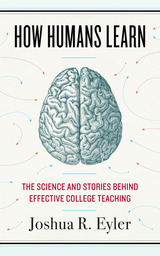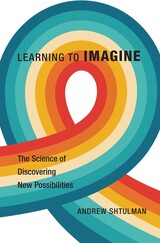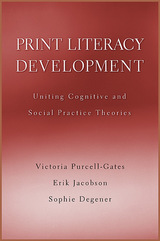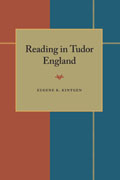
Even on good days, teaching is a challenging profession. One way to make the job of college instructors easier, however, is to know more about the ways students learn. How Humans Learn aims to do just that by peering behind the curtain and surveying research in fields as diverse as developmental psychology, anthropology, and cognitive neuroscience for insight into the science behind learning.
The result is a story that ranges from investigations of the evolutionary record to studies of infants discovering the world for the first time, and from a look into how our brains respond to fear to a reckoning with the importance of gestures and language. Joshua R. Eyler identifies five broad themes running through recent scientific inquiry—curiosity, sociality, emotion, authenticity, and failure—devoting a chapter to each and providing practical takeaways for busy teachers. He also interviews and observes college instructors across the country, placing theoretical insight in dialogue with classroom experience.

An award-winning cognitive scientist offers a counterintuitive guide to cultivating imagination.
Imagination is commonly thought to be the special province of youth—the natural companion of free play and the unrestrained vistas of childhood. Then come the deadening routines and stifling regimentation of the adult world, dulling our imaginative powers. In fact, Andrew Shtulman argues, the opposite is true. Imagination is not something we inherit at birth, nor does it diminish with age. Instead, imagination grows as we do, through education and reflection.
The science of cognitive development shows that young children are wired to be imitators. When confronted with novel challenges, they struggle to think outside the box, and their creativity is rigidly constrained by what they deem probable, typical, or normal. Of course, children love to “play pretend,” but they are far more likely to simulate real life than to invent fantasy worlds of their own. And they generally prefer the mundane and the tried-and-true to the fanciful or the whimsical.
Children’s imaginations are not yet fully formed because they necessarily lack knowledge, and it is precisely knowledge of what is real that provides a foundation for contemplating what might be possible. The more we know, the farther our imaginations can roam. As Learning to Imagine demonstrates, the key to expanding the imagination is not forgetting what you know but learning something new. By building upon the examples of creative minds across diverse fields, from mathematics to religion, we can consciously develop our capacities for innovation and imagination at any age.

How do people learn nonnative languages? Is there one part or function of our brains solely dedicated to language processing, or do we apply our general information-processing abilities when learning a new language? In this book, an interdisciplinary collaboration of scholars and researchers presents an overview of the latter approach to adult second language acquisition and brings together, for the first time, a comprehensive picture of the latest research on this subject.
Clearly organized into four distinct but integrated parts, Mind and Context in Adult Second Language Acquisition first provides an introduction to information-processing approaches and the tools for students to understand the data. The next sections explain factors that affect language learning, both internal (attention and awareness, individual differences, and the neural bases of language acquisition) and external (input, interaction, and pedagogical interventions). It concludes by looking at two pedagogical applications: processing instruction and content based instruction.
This important and timely volume is a must-read for students of language learning, second language acquisition, and linguists who want to better understand the information-processing approaches to learning a non-primary language. This book will also be of immense interest to language scholars, program directors, teachers, and administrators in both second language acquisition and cognitive psychology.

Is literacy a social and cultural practice, or a set of cognitive skills to be learned and applied? Literacy researchers, who have differed sharply on this question, will welcome this book, which is the first to address the critical divide. The authors lucidly explain how we develop our abilities to read and write and offer a unified theory of literacy development that places cognitive development within a sociocultural context of literacy practices. Drawing on research that reveals connections between literacy as it is practiced outside of school and as it is taught in school, the authors argue that students learn to read and write through the knowledge and skills that they bring with them to the classroom as well as from the ways that literacy is practiced in their own different social communities.
The authors argue that until literacy development can be understood in this broader way educators will never be able to develop truly effective literacy instruction for the broad range of sociocultural communities served by schools.

Using educational works of Erasmus, Ascham, and others, commentaries on literary works, various kinds of religious guides and homilies, and self-improvement books, Kintgen has found specific evidence of these differences and makes imaginative use of it to draw fascinating and convincing conclusions about the art and practice of reading. Kintgen ends by situating the book within literary theory, cognitive science, and literary studies.
Among the writers covered are Gabriel Harvey, E. K. (the commentator on The Shepheardes Calendar), Sir John Harrington, George Gascoigne, George Puttenham, Thomas Blundeville, and Angel Day.

How should we educate the children of tomorrow to solve the problems of today?
A new educational model is generating widespread interest and excitement among educators, parents, and community leaders. Known as "cognitive apprenticeship", the model draws upon contemporary cognitive and developmental science and specifies techniques for capitalizing on children's inborn ability to learn in complex natural settings. Sylvia Farnham-Diggory reports on a wide range of school programs that illustrate this innovative approach to schooling.
The new approach contrasts sharply with much current school practice, which is based on early twentieth-century theories of learning. These early theories, in misguided attempts to be "scientific", defined the acquisition of knowledge in terms of simple, quantifiable test behaviors. School practice derived from such outdated theory continues to revolve around fragmented lessons that can be easily counted and graded.
New research in cognition and human development shows that the acquisition of knowledge must be defined in terms of complex interactive networks. It cannot be acquired from workbooks or ditto sheets, nor can it be assessed through paper-and-pencil tests. Mastery of basic skills, a delight in history, literature, and science, and a creative approach to problem solving are best encouraged when children have opportunities to work alongside experts in meaningful and important contexts, thus participating in cognitive apprenticeships.
While never losing sight of her theoretical framework, Farnham-Diggory offers many practical suggestions for transforming classrooms into places of genuine intellectual growth. Schooling sets out a creative and realistic agenda for parents, teachers, school administrators, business leaders, and other concerned citizens who are looking for ways to replace traditional 1930s-style classrooms with rigorous and exciting educational environments.
READERS
Browse our collection.
PUBLISHERS
See BiblioVault's publisher services.
STUDENT SERVICES
Files for college accessibility offices.
UChicago Accessibility Resources
home | accessibility | search | about | contact us
BiblioVault ® 2001 - 2024
The University of Chicago Press









